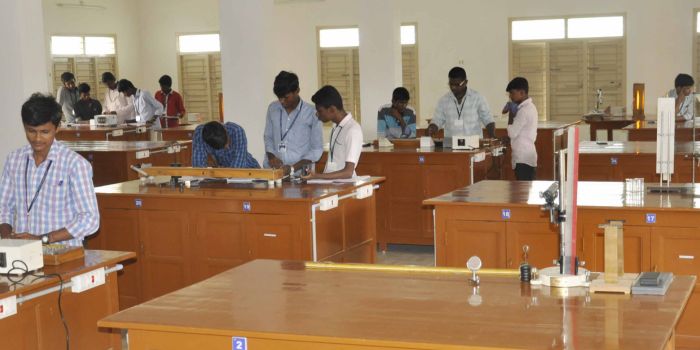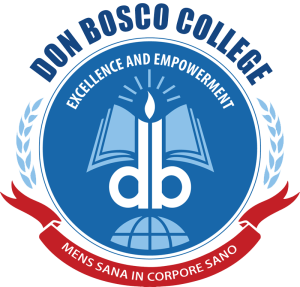
The Laboratory practical contains comprehensive hands-on practice of laboratory experiments that are academically aligned and mirror those performed on campus.
We have a well furnished, large Physics Practical Lab having a separate dark room for optics experiments. There are more than 60 experiments and more than 150 apparatus for B.Sc. students. The M.Sc. students have more than 30 experiments and more than 40 apparatus.
Various important experiments on Portion Pendulum, Compound Pendulum, Bending of Beam, Potentio Meter, Moment of Inertia, Nodal Slide, Newton’s ring, Calibration of Voltmeter, Calibration of Ammeter, Neon Lamp, P.N. Junction Diode, etc are conducted in the laboratory.
We believe that the graduation in B.Sc. and M.Sc. with DBC will provide all students the core knowledge of Science and avail them the opportunities in distinguished fields of Science and Technology.
Core knowledge of Science is the only way to occupy leading positions in research institutes and industrial laboratories in India and the world over.
Goals of the Physics Lab
The Art of Experimentation: The physics laboratory engages each student in significant experiences with experimental processes and design. Physical principles are explored through hypothesis development based on empirical observations (inductive reasoning) and testing of theories (deductive reasoning).
Experimental and Analytical Skills: The laboratory facilitates development of a broad array of basic skills and tools of experimental physics and data analysis, which students utilize in a variety of career fields.
Conceptual Learning: The lab enhances student understanding of basic physics concepts through direct observation of empirical evidence and hands-on learning.
Understanding the Basis of Knowledge in Physics: The laboratory helps students understand the role of direct observation in Physics and to distinguish between inferences based on theory and the outcomes of experiments.
Appreciation for Scientific Inquiry: The lab instills interest in how the physical world works and inspires students to creatively explore hypotheses through experimentation.
Communication: The laboratory facilitates students’ ability to communicate their findings through written reports.
Collaborative Learning Skills: The laboratory helps students develop collaborative learning skills that are vital to success in many lifelong endeavors
What to bring to Lab?
Lab manual
Laboratory data sheets
Pre-lab assignment
Scientific calculator (preferably with statistical functions)
A pen
Blank data table(s) and pre-lab notes (as needed)



